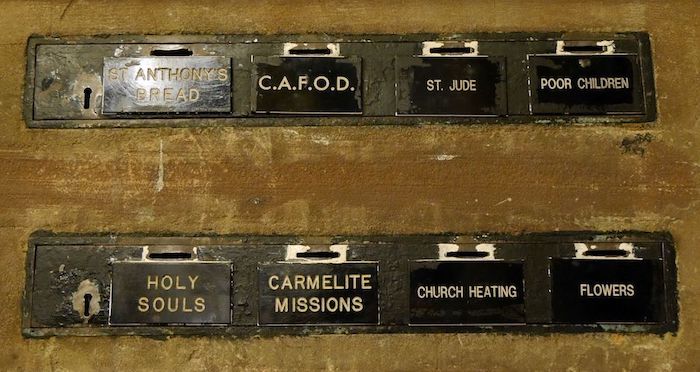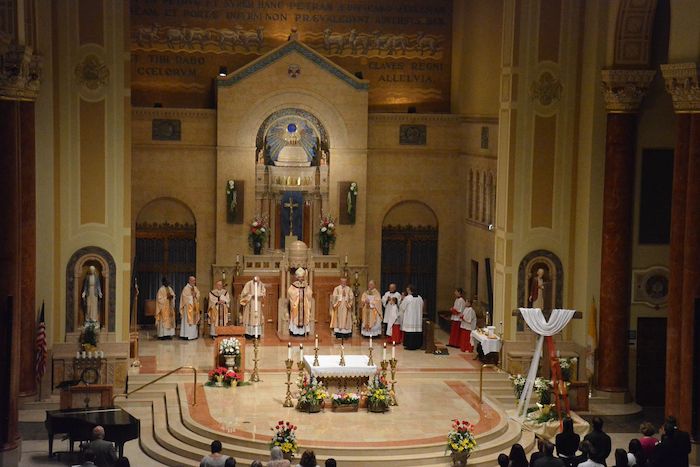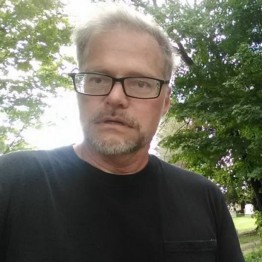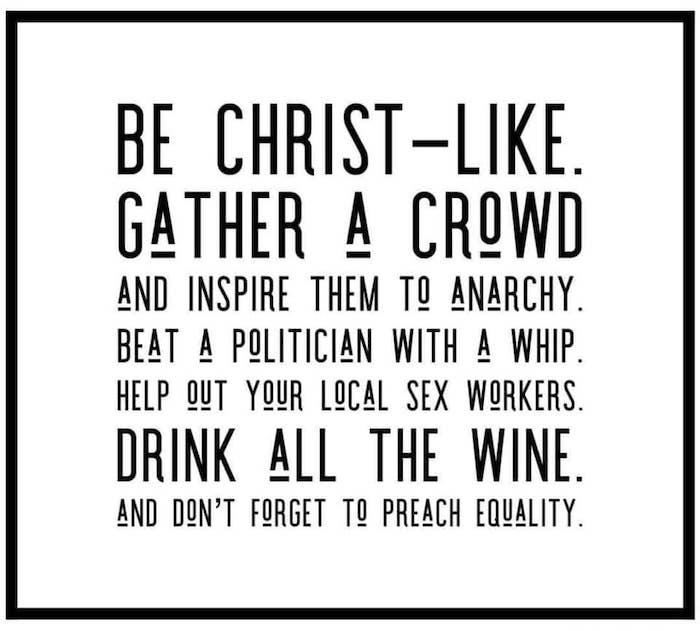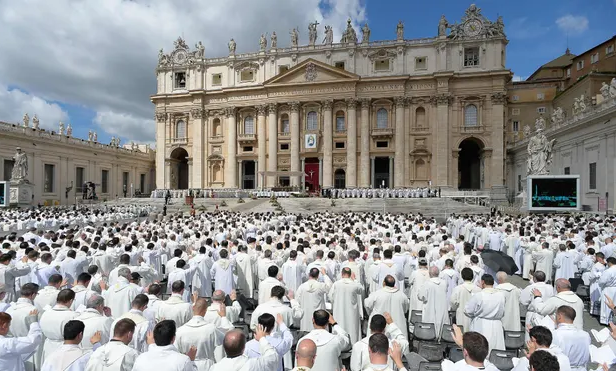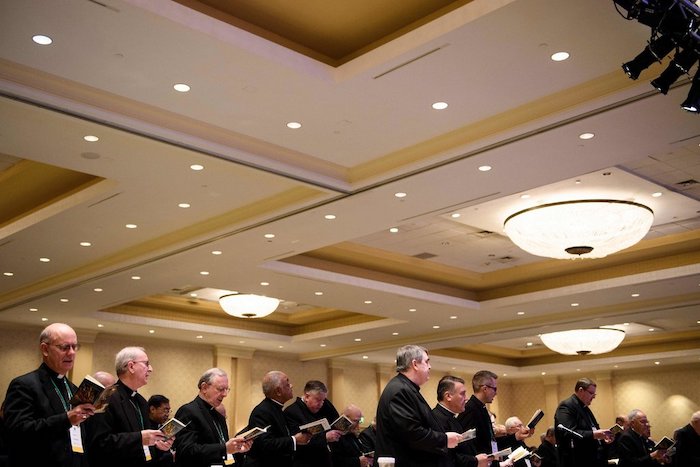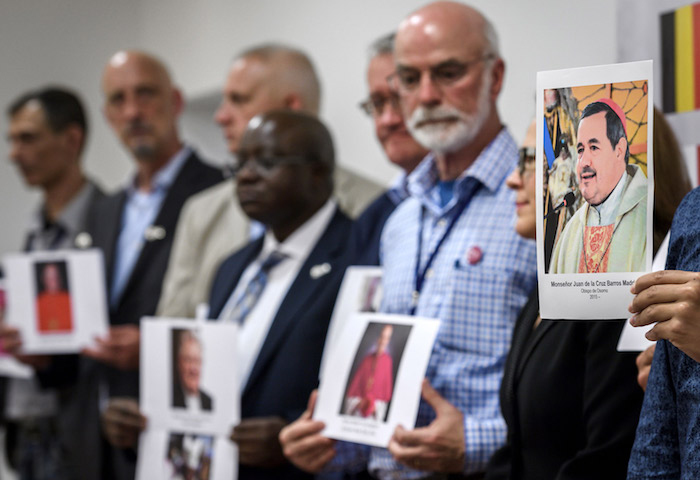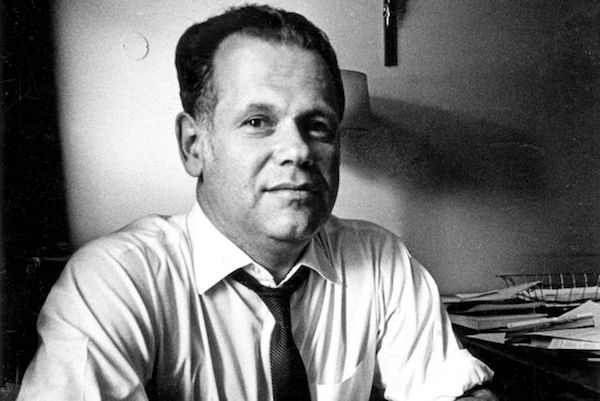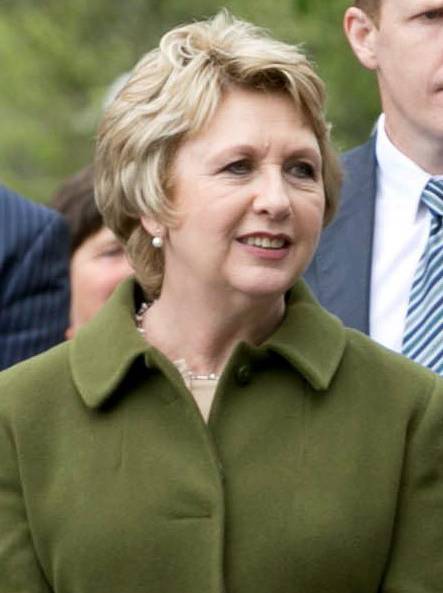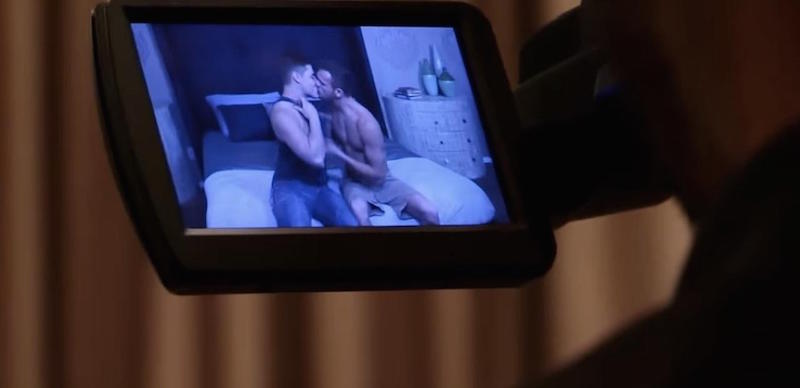— Francis’s recent journeys ahead of the October synod may be signals about the future direction of the Church.
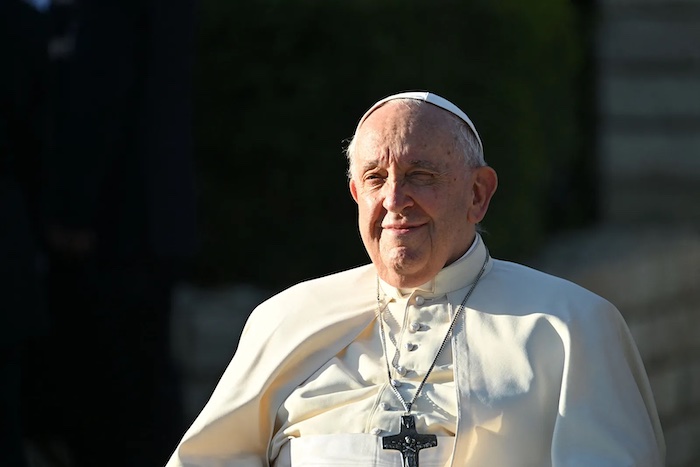
By
Pope Francis’s “apostolic journey” to Mongolia earlier this month had the unexpected consequence of bringing Pierre Teilhard de Chardin, a singular and controversial French Jesuit scientist who died nearly seventy years ago, into the news cycle. As it turns out, Teilhard’s theology of cosmic spiritual progress is a useful way to understand the challenges that Francis is currently facing, as he and the Church prepare for a global synod next month in Rome. There, three hundred and sixty-three clerical and lay leaders representing two rival conceptions of the Church will encounter one another for several weeks of behind-closed-doors dialogue—a process that is meant to be amicable but may lead to open conflict prior to a second session next October.
The main question surrounding the Pope’s journey was “Why Mongolia?” The country, with a population of around 3.3 million, has only fifteen hundred Catholics, fewer than in a large parish in Chicago—and far fewer than in other Asian nations, such as Vietnam, which has seven million Catholics and a complex history with the Church, and may have benefited from a papal visit. (By comparison, in early August, Francis celebrated Mass in Lisbon for a million and a half congregants, many of them young people there for World Youth Day.)
But the trip suited Francis’s stated wish for the Church to go “to the margins,” and allowed him to spend time with Giorgio Marengo, an Italian cleric who has lived for more than two decades in Mongolia, doing missionary work, such as fostering Catholic-Buddhist dialogue. In August of last year, Francis made Marengo, who is forty-nine, the youngest member of the College of Cardinals, where he is likely to be a progressive presence for decades to come. And being in Mongolia gave Francis an opportunity to direct remarks, implicitly, to the neighboring powers: Russia, whose war in Ukraine has occasioned a shifting and at times confusing response from him; and China, where the Vatican’s agreement to let the government choose which priests become bishops, in exchange for tolerating the Church’s presence in that nation, has been widely criticized.
The trip also expressed Francis’s own long-distance interest in Asia. As a young man in Argentina, he wanted to be a missionary in Japan; then and afterward, he hoped to follow in the footsteps of influential Jesuits who spent large parts of their careers in Asia: St. Francis Xavier, Matteo Ricci, Pedro Arrupe, and Teilhard de Chardin. Born in France in 1881, Teilhard was a restless, searching figure: a priest, a poet, a stretcher-bearer in the First World War, a paleontologist based in China (where, in the nineteen-twenties, he took part in an important expedition in search of human origins), and a mystical theologian. His written work, a sustained effort to reconcile Christian theology with the theory of evolution, placed him in the vanguard of twentieth-century theology—though lately otherwise appreciative theologians have expressed concern that his emphasis on progress through evolution led him to contrast “the advancing wing of humanity” with “definitively unprogressive ethnical groups,” thus aligning himself with movements in support of race-based eugenics. Teilhard’s notion that the earth would someday be surrounded by a complex information system powered by human consciousness has been seen as anticipating the Internet, and the Episcopal homilist at Prince Harry’s wedding to Meghan Markle, in 2018, alluded to one of Teilhard’s aphorisms: “Someday, after mastering the winds, the waves, the tides, and gravity, we shall harness for God the energies of love, and then, for a second time in the history of the world, man will have discovered fire.” But Teilhard’s most memorable concept is the notion that “tout ce qui monte, converge,” or “everything that rises must converge”—that the various forces of natural evolution and human civilization are all ascending in a pattern of spiritual progress and will converge in a “Point Omega” at the end of time.
While doing field work in Mongolia, in 1923, Teilhard celebrated what he called a Mass on the World; lacking bread and wine to consecrate in the usual fashion, he simply consecrated the whole physical world, represented by the vast steppe where he stood. The Mass was expressive of Teilhard’s thought, which, in 1927 and afterward, drew the attention of the Vatican, where officials objected to his dismissal of the idea that the human race descended from Adam and Eve, and his corresponding lack of emphasis on the idea of original sin.
During the next three decades, Teilhard elaborated on his outlook in a number of essays and two books, “The Divine Milieu” and “The Phenomenon of Man.” The Vatican and his Jesuit superiors forbade him to publish any theological writing, but he remained a faithful Catholic and an obedient Jesuit. Following a visit to the U.S. in 1948, he settled in a Jesuit residence in New York City, where he died in 1955, on Easter Sunday—and the posthumous publication of his work began. During the Second Vatican Council, which first convened in 1962, criticism of his work eased, and his books became standard texts for progressive theologians—until they fell out of favor again, under the traditionalist Popes John Paul II and Benedict XVI, even as they personally spoke warmly of him from time to time.
This Pope, however, has looked emphatically to Teilhard as an example. In “Laudato Si,” his landmark encyclical on the climate, from 2015—he is expected to issue another one next month—he cited Teilhard as an inspiration. After celebrating Sunday Mass in Mongolia, Francis spoke ardently about Teilhard, on the centenary of the Mass that he celebrated there. “This priest, often misunderstood,” he said, “intuited that ‘the Eucharist is always in some way celebrated on the altar of the world.’ ” The Pope was bringing the priest back from the margins, and joining his own Asian journey to Teilhard’s.
Francis’s trademark style of discourse is to issue an offhand comment that is clearly on the side of progress, but to remain vague about how progress is to be achieved, and this tendency, too, has lately sparked controversy. Following a video call with young Russian Catholics, on August 25th, in which Francis urged them to connect with their roots in the “Great Russia of saints, rulers, Great Russia of Peter I, Catherine II, that empire—great, enlightened, of great culture and great humanity,” Archbishop Sviatoslav Shevchuk, the head of the Ukrainian Greek Catholic Church, immediately castigated the Pope for celebrating Russian imperialism past and present. Then the Jesuit journal La Civiltà Cattolica published a transcript of a conversation that Francis had with Portuguese Jesuits during his trip earlier that month. When one asked about the open criticism of him by some American Catholics, including bishops, Francis replied at length. “You have seen that in the United States the situation is not easy: there is a very strong reactionary attitude. It is organized and shapes the way people belong, even emotionally,” he said. “I would like to remind those people that indietrismo”—backwardness—“is useless, and we need to understand that there is an appropriate evolution in the understanding of matters of faith.” He later added, “Those American groups you talk about, so closed, are isolating themselves. Instead of living by doctrine, by the true doctrine that always develops and bears fruit, they live by ideologies.”
Which American groups, everyone wanted to know, was Francis talking about? In the Times, C. Preston Noell III, of the American Society for the Defense of Tradition, Family, and Property (a Pennsylvania-based offshoot of a Brazilian group founded in 1960 to resist supposed communist influence on the Church), pointed out that Francis has spent less than a week in the United States as Pope, suggesting that he is poorly informed about the life of the Church here. The Washington Post ran a dossier of suspects, among them Raymond Arroyo, a host on the traditionalist Catholic cable network EWTN, based in Alabama, who has personified the network’s opposition to Francis. Others pointed to Cardinal Raymond Burke, who served as the archbishop of St. Louis and then as a Vatican official, until he was removed from one post in 2014 and replaced in a different one earlier this year. In the foreword to a new book, Burke writes that the October synod will cause “confusion and error” and lead to “the grave harm of many souls.” The book has been published in eight languages by the Society for the Defense of Tradition, Family, and Property, which has sent copies to bishops and clergy, some of whom will be delegates to the synod.
Complete Article ↪HERE↩!

